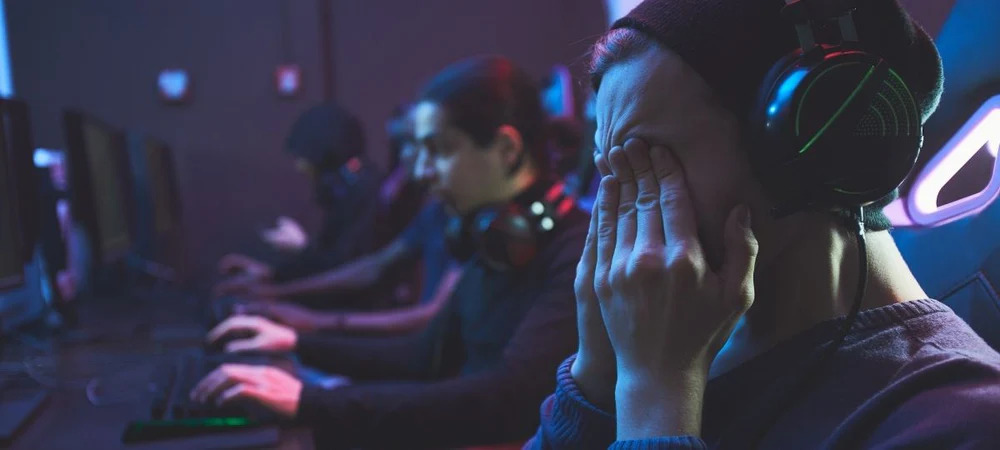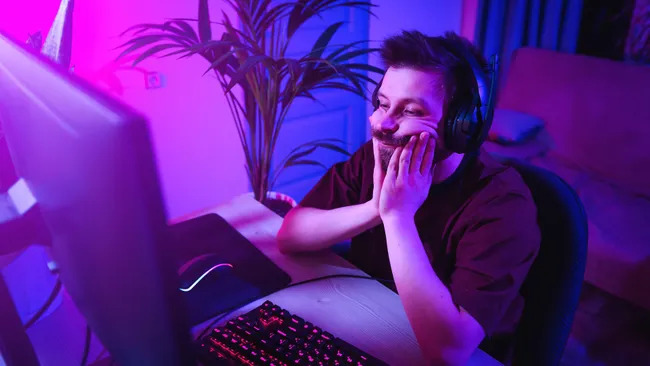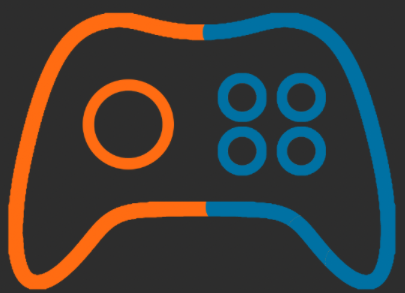Did you once love video games, but now feel tired of them? Or were you once passionate about them now and now have no interest? Perhaps Electronic-ED is the problem.
Fu Gemen is a 27-year-old gamer from Shandong, who has 21 years of experience in playing video games with a desktop and three gaming consoles at home. However, Fu hasn’t gamed for a while. When he comes home from work, he is always too tired to open his consoles to play games – instead he just lies in bed and watches TikTok.
Fu’s story may sound like irregular to you, but it’s happening more and more to young Chinese gamers. It’s even given rise to a special internet buzzword in China: “Dian Zi Yang Wei”, which can be translated as “Cyber Impotence” in English (which will be replaced with electronic-ED throughout the rest of this article).

The term Electronic-ED first appeared at the end of 2021, when China was still under the shadow of the coronavirus pandemic. Since then, the Chinese gaming community has started to show symptoms of an inability to get excited about playing games.
Some gamers posted their experiences online to discuss with others, and found that this issue was not uncommon. Thus the term was born, and as time passed, more and more Chinese gamers began to experience symptoms of Electronic-ED – but the reasons for this were not all the same.
As Fu got older, he saw more and more games, but played fewer. By now, he has all the gaming equipment despite rarely even playing games.
Fu says: “Are video games not fun? I don’t think so, the AAA games nowadays are much better than those of a decade ago, in terms of graphics and gameplay. So why are they less attractive than before?”
“I think it’s an aesthetic fatigue, as the core gameplay of these games is actually the same. But when there’s an enormous pressure looming over gamers, the light-hearted fun of gaming is lost,”
Hong Tianyu is a 20-year-old university student from Shanghai. He participates in various clubs at school, and even looks for different internships in addition to his courses. The pressure from school and family makes his life very busy.
When he actually has the time to open his laptop, he realises that he has no interest in playing games. Hong says: “In the end, there’s an absence of that carefree and quiet feeling in gaming now. When I look at the games in my Steam library, I can always feel the anxiety within myself: the AAA games are too long in plot, and the Souls-like games are too difficult…”
At the end of the day, Hong would always play those same old games and feel very empty inside afterwards. He feels like those hours didn’t mean anything, and that the pleasure of exploring a new game has been lost.
“Is it true that I don’t like games anymore? No, I just can’t bring myself to be calm and relaxed anymore. If I could just go about my day without having to think about anything life-school-wise, feeling that idleness in my life, the joy of gaming might come back.”
Lv Hu is a 35-year-old white collar worker from Nanjing. When Lv gets home from work, he looks at his Steam library, with many video games in it, but he couldn’t bring up the desire to play them at all. They are exquisite, the plot is epic, but Lv couldn’t find that feeling that he had when he was young.
Lv says: “I remember in high school, every night I would play Battlefield 2, because that was the only game I had. Although it was an older game, I can still remember that kind of joy till this day,”
Looking at the countless app icons on his phone, the non-stop message alerts on social media and emails, the work requirements sent by his boss at any time… all of these memories make Lv feel more and more anxious.
He says: “I feel so tired and exhausted, technology is supposed to liberate mankind, but you find that your boss can call you from anywhere with a single phone call, and give you an assignment at any time with a WeChat message… is this really what we were looking forward to?”
Dr Chen Jinchu is a PhD in psychoanalysis and psychopathology from the University of Paris, who has written in the book “An Introduction to the Psychoanalytic Thought of Françoise Dolto.”
He said, “It’s really frustrating to lose enthusiasm for video games. Chinese gamers have been through a very difficult journey: the educational environment when they were children, the Coronavirus crisis, the academic and employment environment, the explosion of information, and looking after the elderly and children at home. – all of these can be a source of electronic impotence.”
From a psychoanalytic perspective, Dr Chen divides the issue into a ‘trilogy’, in order to understand the problems associated with addiction and electronic-ED in the gaming community.
The first step is the game itself – it means one enters the world of gaming, and starts to explore it. The second stage is the addiction stage, when you begin to familiarise yourself with the rules of the game, and you want more and more, which may lead to complete immersion and even addiction. Then, the third stage is ‘impotence’, when the impossibility of desire is realised, and the gamer starts to lose passion.
Dr Chen pointed out that video games are held in a particularly special regard in China, and their gamers have extremely high expectations for it.

He believes that many Chinese gamers – especially adults – expect a high-energy feedback from gaming. Because they’ve already played high quality games before, they will look forward to fascinating game plots, thrilling gameplay, powerful equipment obtained during the journey, and so on.
The cure for Electronic-ED given by Dr Chen is to treat it like procrastination. He says: Whatever game you see and want to play, switch it on for five minutes, then see what happens after that. “
This is a good way to kill the toxic “do or die” mindset of gamers – no matter what the goal is, there’s always a minimal introductory step, whether it’s opening the game on your desktop or just pushing the joystick on the controller to make your character move forward.
Dr Chen says: “It’s likely for gamers to be harsh on themselves until there’s big results. But if you managed to open a game today and manoeuvre your character to completing a quest, whereas yesterday you didn’t even want to open the game at all – that’s a big improvement.”
Electronic-ED has taken its toll on Chinese gamers, and because of this, we need to celebrate and slowly restore that original passion and motivation for gaming. Every small step we take is a huge moment, and if someone mocks you for celebrating such a small thing, tell them: “Screw you!”
Fu, Hong and Lv have began picking up their lost confidence, but the long road ahead won’t be easy for Chinese gamers. If we don’t give up hope, there’s always a way out.
This article was written by Yaocheng Liu, and edited by Austin Zhang and Eddie Bryant






